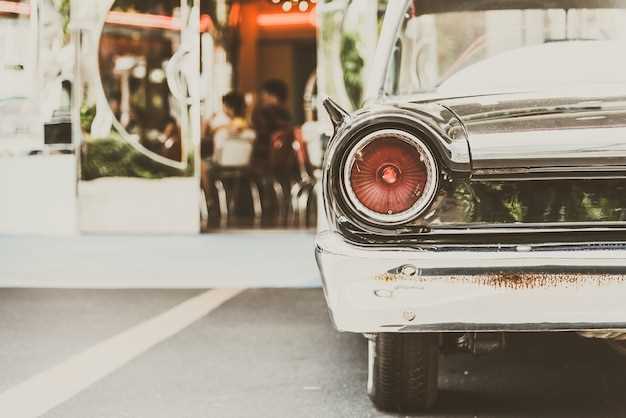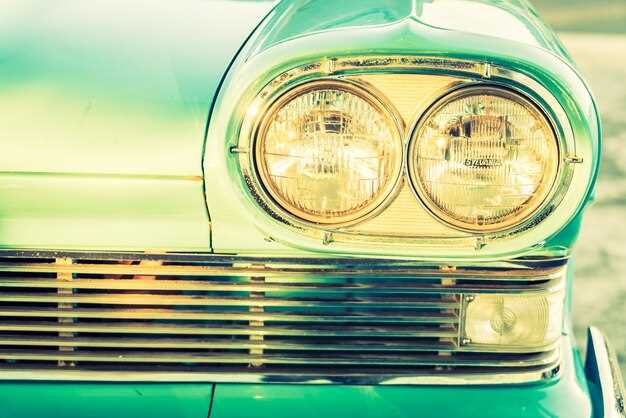
Accurately appraising a classic JDM (Japanese Domestic Market) car requires a thorough understanding of various factors that influence its value. With the rising popularity of these vehicles among collectors and enthusiasts, pinpointing the worth of a classic JDM car can be both an exciting and challenging endeavor. To navigate this process effectively, one must consider aspects such as rarity, condition, modifications, and historical significance.
One of the first steps in the appraisal process is assessing the condition of the vehicle. This entails examining the exterior and interior for signs of wear, rust, and previous repairs. A meticulously maintained car will always carry a higher value than one that has been neglected. Furthermore, understanding the originality of the vehicle is crucial, as cars with matching numbers and unaltered components often fetch a premium price.
Rarity also plays a pivotal role in determining the market value of classic JDM cars. Limited production runs and specific models that have become icons within the automotive community can significantly enhance a vehicle’s desirability. Conducting thorough research on production numbers and market trends can provide valuable insights during the appraisal process, enabling enthusiasts to make well-informed decisions.
Additionally, modifications can either positively or negatively impact a classic JDM car’s value. While some buyers may appreciate performance upgrades, others could prefer a stock version. Understanding the target market and the preferences of potential buyers is essential when assessing how modifications influence overall worth.
Assessing Market Trends and Historical Data for JDM Models
Evaluating the value of classic Japanese Domestic Market (JDM) cars requires a comprehensive understanding of market trends and historical data. The appraisal process begins by analyzing the demand for specific models, which can fluctuate based on cultural influences, collector interests, and automotive events. Trends such as the rise of car culture in the 1990s and early 2000s have significantly impacted the desirability of certain JDM vehicles, with models like the Nissan Skyline GT-R and Toyota Supra often fetching premium prices.
In addition to current market trends, examining historical data plays a crucial role in accurate appraisal. This includes understanding the production numbers, sale prices over the years, and any notable fluctuations caused by key events, such as anniversaries or movie appearances. Enthusiast forums, auction results, and classic car sales websites provide valuable insights into how prices have evolved, enabling potential buyers and sellers to better gauge the market pulse.
Another important consideration is the geographic location of sales. The demand for JDM cars may vary between regions; for instance, vehicles that are well-known in North America may not hold the same allure in Europe or Asia. Therefore, examining regional trends and historical sales data is essential for a thorough appraisal.
Lastly, market analysis tools such as price guides and valuation reports can serve as useful resources when assessing the value of JDM cars. These tools compile extensive data on sales trends and can help establish a benchmark value, allowing collectors and investors to make informed decisions based on empirical evidence rather than anecdotal information.
Determining Condition and Authenticity Factors in Valuation

The condition of a classic JDM car is a primary factor influencing its value. A thorough assessment must be conducted to evaluate the mechanical state and aesthetic integrity. Inspecting for rust, dents, and previous repairs can provide insight into how well the car has been maintained, thus significantly affecting its overall appraisal. Cars in pristine condition, ideally with an outstanding paint job and a well-preserved interior, will command higher prices than those showing signs of deterioration.
Authenticity is equally crucial when determining a classic car’s value. Modifications can dramatically alter a vehicle’s appeal to collectors. Originality often equates to a higher valuation, especially if the car retains its factory specifications and components. Documentation proving authenticity, such as records of the original build, service history, and ownership provenance, enhances credibility and can lead to increased buyer confidence.
Performing a comprehensive inspection and verifying authenticity require expertise. Engaging the services of a qualified appraiser or mechanic familiar with JDM models can provide a more accurate valuation. Such professionals can identify non-factory modifications or hidden damages that could adversely affect the value. Additionally, validating the vehicle’s identification number (VIN) can help ensure that the car is genuine and not a replica or a modified version of the original.
Ultimately, evaluating condition and authenticity helps establish a fair market value for a classic JDM car. Buyers and sellers alike should prioritize these factors to ensure a transparent and beneficial transaction.
Utilizing Professional Appraisal Services for Accurate Pricing

When it comes to valuing a classic JDM car, engaging a professional appraisal service can provide significant benefits. These experts possess the knowledge and experience necessary to ensure an accurate valuation based on various factors that influence market prices.
The process of appraisal involves a thorough inspection and evaluation of the vehicle’s condition, history, and rarity. Professional appraisers take into account several key elements, including:
- Mechanical Condition: Assessing the state of the engine, transmission, and suspension systems.
- Body Condition: Evaluating the vehicle for rust, dents, and overall cosmetic appearance.
- Originality: Determining whether the car retains its original parts or has undergone modifications.
- Documentation: Reviewing ownership history, service records, and any apps or modifications that may affect value.
- Market Trends: Analyzing current market values and trends in the classic JDM sector.
By conducting a comprehensive analysis, these professionals can provide a detailed appraisal report that not only reflects the car’s current market value but also highlights its investment potential. Here are some steps to follow when utilizing professional appraisal services:
- Research Qualified Appraisers: Look for certified appraisers who specialize in classic cars, specifically JDM vehicles.
- Verify Credentials: Ensure the appraiser has the necessary qualifications and experience in the JDM market.
- Schedule an Inspection: Arrange for a thorough evaluation of your vehicle, allowing the appraiser to conduct an in-depth inspection.
- Receive the Report: After the assessment, review the appraisal report carefully, considering all factors outlined by the appraiser.
- Consult on Next Steps: Discuss potential pricing strategies and considerations for selling or insure your JDM car based on the appraisal.
Utilizing professional appraisal services not only ensures an accurate value but also gives owners confidence in their investment decisions. In a market where values can fluctuate, having a reliable valuation can be invaluable for both buyers and sellers alike.




